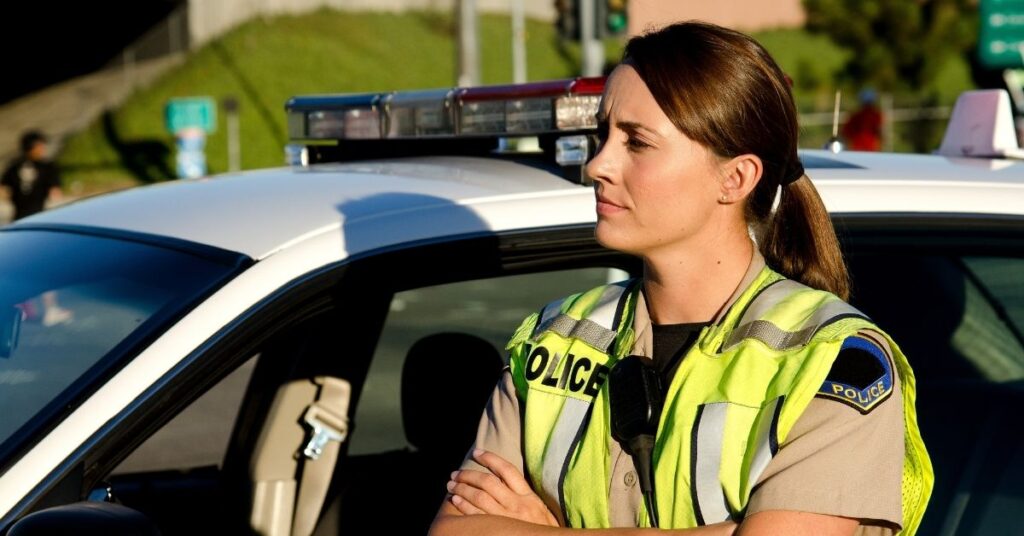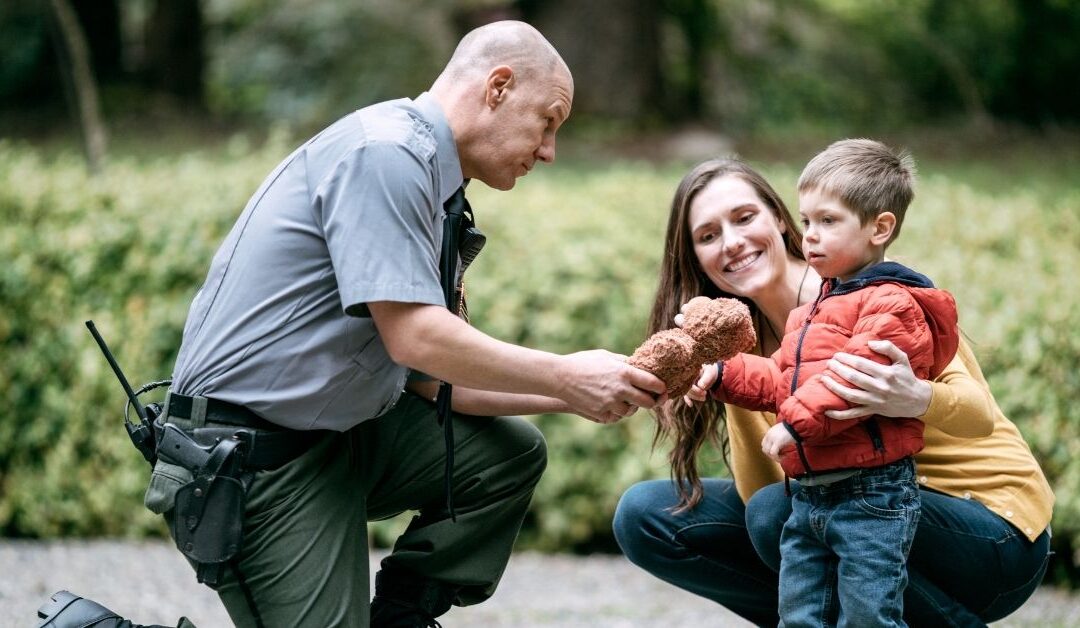For some, autistic children can be fascinated with fire trucks, police cars and other things that are related to first responders. For others, first responders could seem scary to them when there are situations that include loud sirens and other sensory overwhelm. Autistic children and teens may be in a position where first responders need to help them. How can you as a parent help your autistic child or teen be comfortable with first responders to accept their help or ensure they are more likely to act appropriately?
Law enforcement autism training
I’ve seen so many media stories lately about how more and more law enforcement agencies are being trained to interact with those on the autism spectrum. This is such a positive step toward these officers having a better understanding of autistic people. This type of training encourages inclusion and acceptance. It also will go a long way in helping them to know how to better handle interactions with someone who is autistic.
My brother is a police officer, and he, of course, has gotten to know more about autism by being around our son J. Our son has Asperger’s Syndrome, so his autism is on the milder side, but it still has been helpful for my brother to learn more by being around J over the years.
Even better, J has learned that police officers are just people too by having an uncle who is one. I have never seen J uncomfortable around police, and he often will say hi to them when we run into an officer while out and about.
How to help your autistic child be comfortable around first responders
So what can you do to help your autistic child feel more at ease when they encounter first responders? Here are some things that I did with my son J over the years.
1. Read your child stories about first responders
When your child is young, read stories about first responders – firefighters, paramedics and police. Reading stories about how first responders help people can let your child know that they are there to help them when they need it. You can find books at the library or check out this suggested book for young readers.
Hooray for Helpers!: First Responders and More Heroes in Action (affiliate link)
2. Ask a first responder to talk to your child
Do you know a firefighter, paramedic or police officer? Ask them if they can show your child their uniform and talk about what they do in their jobs. Have them emphasize that they are there to help people who are in trouble and need assistance. Ask them to talk to your child about what to do if they need help. It’s important they know how to accept it from a first responder who arrives on the scene.
3. Visit a fire or police station
Another way to help your child be comfortable around first responders is to see if you can visit your local fire and/or police station. Both of my boys were in Cub Scouts, so J was able to visit a fire station. He learned about what they do and saw their fire fighting gear and trucks. He loved it!
My younger son had to miss the fire station outing with his Cub Scout den. However, he still needed to complete a trip to a fire or police station for his badge. I called my brother, and both boys were able to visit his police station. They toured the station, saw his SWAT gear and checked out his police car. It was a highlight of their week! Call your local fire or police station to see if a quick tour may be available. Many will do this as part of their community outreach. If you belong to an autism support group, asking as a group may be even better and benefit all of your children!
4. Check out “Be Safe the Movie” video modeling
If your child enjoys watching videos and movies, look into the “Be Safe the Movie.” This is a video modeling program that helps people with autism understand how to interact with police. The film and program were produced by Camino Cinema, which was created by a woman who works with those who have autism and has an autistic son.

5. Role play how to act when a first responder is trying to help your child
Many autistic children are prone to elopement, or wandering or running off. If your child is at risk, talk to them about what could happen if they wander off and get lost. You may even want to role play them being found by a first responder and how to interact and receive help. (I know this may be tricky, and for some children this may scare them too much. It also could cause intrigue and encourage some to try it. You know your child best. If you think this would help, you could try it. If you believe it would cause more problems, then skip this one.)
Special considerations for autistic teenagers’ interactions with police
Autism is “invisible.” In other words, autistic children and teenagers usually don’t look like they have a disability or special needs. For many, others will not notice they have autism until they begin interacting with them or watching them interact with peers. Therefore, a police officer will most likely not understand your teen has autism when they first see them.
It is important that your autistic teen knows how to interact appropriately with a police officer. This will help them either not make a bad situation worse or will allow them to receive the help they need.
Talk to your teen about these appropriate behaviors when approached by a police officer:
- Always follow a police officer’s directions. Listen to the officer carefully and be respectful.
- Tell the police officer that you have autism. It is important to let the officer know since they may not be able to tell easily or quickly in a situation.
- Be sure to show your hands at all times. If you have a card with information about your autism to give to the officer, let them know and ask for permission to retrieve it first.
- Do not run away from a police officer, even if you are afraid. Stay in place. They are there to help you or need to investigate a situation.
- Avoid touching a police officer and their K9 dog if they have one. (I know the dog will be very hard not to pet for so many – autistic or not. But they have a job to do, and the dog may feel threatened if you try to touch it.)
- Give the police officer space – don’t stand too close. Standing close to someone not only invades their personal space, but in this case, the officer may believe the other person may be trying to take their gun or other gear.
- If you don’t know the answer to a question or understand it, it’s okay to say that or to ask for clarification.
Need more information?
Creating an autism handout card for your child may be helpful. This is simply a small card that explains your child has autism. Want a free template to use? Check out this free download from Pathfinders for Autism.
If you want more information about how your child or teen with autism can interact with police, download a free “Meet the Police” toolkit from the National Autism Association.
Has your autistic child interacted with first responders? What has been their experience? What advice would you give other parents to help their autistic child have a positive encounter with first responders? Leave a comment so that we can share and encourage one another on this journey.








